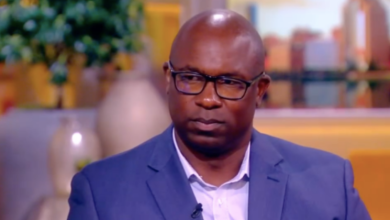Addressing Addiction Stigmas in Black Communities and the Path to Healing

Addiction is notoriously difficult to address, largely due to how emotive it is, but also, very much because of a lack of understanding on how to address it. In black communities, it’s a topic that’s often pushed under the carpet as a source of shame.
It’s imperative, now more than ever to bring addiction to the forefront of conversation. Substances are wreaking havoc in black communities, especially those that are impoverished.
By tackling addiction stigma, people have higher chances of recovery and for the community as a whole, there’s the broader foundation for increased black empowerment.
Historical Context: Roots of Addiction Stigma
The stigma of addiction has long been an issue and has deep-seated roots. One study revealed that society often stigmatise addiction due to people believing that it’s a habit developed as linked to a person’s character, that people have the ability to simply stop. Some evidence points to the influence of religion being suggestive that addiction is a moral failing.
When introducing politics and how governments control substances as well as availability of drug services, there’s a huge context of varying thoughts around addiction.
On top of the aforementioned, there are cultural factors such as the War On Drugs campaign initiated in the early 70s which further criminalised drug-related behaviours, which naturally influence public opinion. Negative portrayals in the media associated with substance addiction also don’t help the situation.
It’s critical to acknowledge that the intersectionality of racism and systemic oppression along with people believing that substance use is due to character and/or moral failing shapes unhelpful narratives around it. This has a huge impact, especially, on individuals living with addiction.
Stigma in Practice: How Shame Silences Healing
The issue with societal stigma is that it prevents people from opening up, talking, and seeking the help required to quit. When it feels like the whole world judges you, and even you judge yourself, with negative ingrained societal narratives, it’s exceptionally hard to know how to hold your hand up in admission of having addiction.
Substances create a type of inner alienation within many people even from themselves. Without the drugs or alcohol, they don’t know themselves, or how to be, who they are, what they feel or want. Therefore, knowing how to manage themselves without any guidance or support becomes increasingly difficult.
Addiction is a condition that requires addressing physically, mentally, emotionally, and socially through a multi-disciplinary team. Withdrawal can be severely dangerous without clinical supervision. The societal stigma that makes people think that they should “just be able to stop” with willpower alone is absurd, and yet it’s rife. Many people don’t seek help because they think, “I should be able to quit without any help”.
People with other diseases aren’t living with the pressure that they should be able to heal on their own, and this shouldn’t be the case in addiction. As if this problem isn’t huge enough, it’s often addiction rehab services in London that are hit first by governmental budget cuts.
In relation to black communities, research reports the following barriers as to why people don’t seek help in relation to substance abuse and mental health…
- These issues aren’t openly discussed, especially outside of the family
- Addiction and mental health are associated with embarrassment and shame
- There’s a fear of incarceration linked to drug dependency
- There’s the double stigma linked to intersectionality of race and addiction
- Intergenerational substance use is common for those living in impoverished communities and can make accessing help more complex an issue.
Empowerment through Acknowledgement: Breaking the Silence
Empowerment comes through shining a light on those issues we keep hidden. Bringing them out into the open and addressing what needs attention. Empowerment comes through identifying that the system as it isn’t working, that it’s failing people, and that we could and need to be doing better.
In relation to addiction, open conversation and creating a community dialogue with competent messages that is meaningful to our communities is everything.
Individuals must have the courage to talk about addiction openly, to lead change by example, and to share helpful information. Communities must work together to create safe spaces where real treatment can begin. The social aspect of community (connection) working to break stigma and reduce shame has the power to lead to clinically supervised help, so that people can recover in a sustainable way.
It’s important for black people to have representation in recovery spaces, and the sooner progress is made supporting people into treatment, the sooner this happens, and more successful sustainable recovery areas evolve.
The Path to Healing: Recovery and Community Solutions
There are various evidence-based recovery approaches that work for Black communities. It’s important to combine approaches that work for all people when addressing addiction (i.e. cognitive behavioural therapy) as well as what works specifically in relation to specific peoples.
Research shows that black Americans place “higher value on communal relationships… and by adopting such a communitarian perspective, they might be even more receptive to living in a house that values participation and involvement.”
It’s widely accepted that human connection is the opposite of addiction. It’s this that helps facilitate long-lasting in change. When a person with an addiction has one or a few significant people to feel connected to, seen by, to be accountable to, and to have as support, change comes much easier. This can be done in families, friendship groups, through peer support groups and through faith-based networks.
For those supporting people with addictions right now, develop your understanding of the substance, of addiction, and of how to communicate with people who have addictions. Motivational interviewing is one of many techniques used by therapists to help facilitate change conversation. As well as this, contact addiction organisations in the local area. Seeking guidance for you as well as your loved one is important in making connections and developing coping skills.
The Role of Black Empowerment in Recovery
Negative mental health symptoms are highly linked to addiction. Usually, where addiction exists, so do mental health conditions. By tackling both, there’s a space for collective liberation. When people with varying skills and perspectives come together in the community to support those with troubling issues, the community as a whole progresses.
Empowerment in recovery comes via increasing education, awareness, communication, connection, opportunities, and equality.
By increasing awareness and education on how addiction impacts the black community in particular and opening a dialogue around this, there comes the opportunity to create real change and community healing. This breaks down stigma and improves healthy living outcomes.
Building a Future without Stigma
Stigma is reduced by spreading real knowledge behind the causes of, and how best to treat, addiction. As individuals, communities, and leaders, every person has a role. Whether on a personal level educating oneself, or as a group sharing informative and helpful messages in local areas, there’s much to be done.
Ensuring people know that mental health and addiction are linked, that people who become addicted often have a genetic predisposition, that they’ve often experienced trauma, that the neurological and physiological systems are so impacted that medical care is critical in treatment.
Healing isn’t simply for an individual, it’s a communal act, best evolving from many. Breaking the silence and stigma that surrounds addiction is a revolutionary act.
Where to go From Here
There’s an urgent need for us to address addiction stigma. By doing so, a safer and more conducive space for individual healing and both personal, as well as communal black empowerment, emerges.
From here, it’s essential that we develop increased awareness on what addiction is, how it impacts, and how to address it most effectively. When tackling addiction, collective action is most effective. With input from various people in our communities, there are the skills to facilitate long-lasting and positive change.




